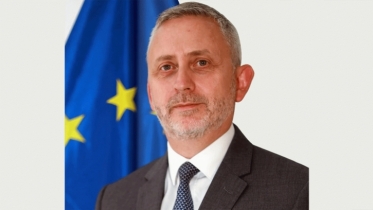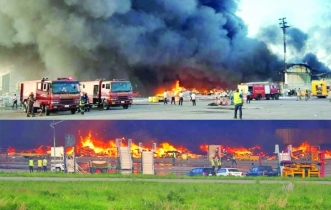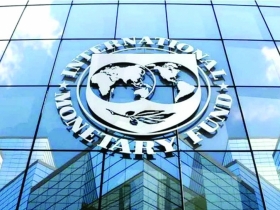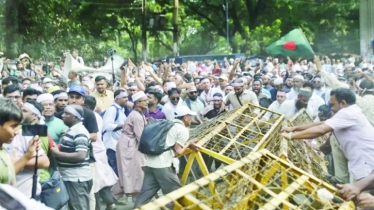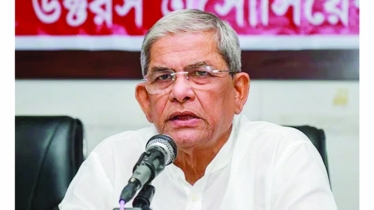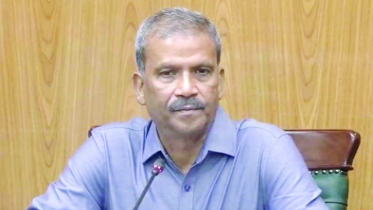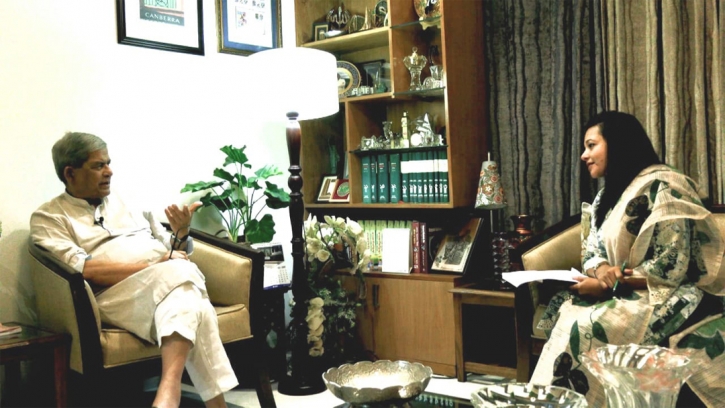
BNP Secretary General Mirza Fakhrul Islam Alamgir has said the party is in no dilemma over conferring the premiership if it is elected to power.
In an exclusive interview with Bangladesh Sangbad Sangstha (BSS) at his Gulshan residence here recently, he detailed his experience about his recent New York tour accompanying Chief Adviser Professor Muhammad Yunus and his views regarding world perception about post uprising Bangladesh, existing political challenges.
Alamgir also spoke about the BNP preparedness for the planned February elections touching upon issues of party manifesto, candidate selection and its possible alliance with political parties.
The BNP secretary general simultaneously spoke about the party's stance and views on the July Charter and referendum, foreign relations issues and particularly ties with India and now disbanded Awami League, BNP Chairperson Begum Khaleda Zia's electioneering and return of party's Acting Chairman Tarique Rahman.
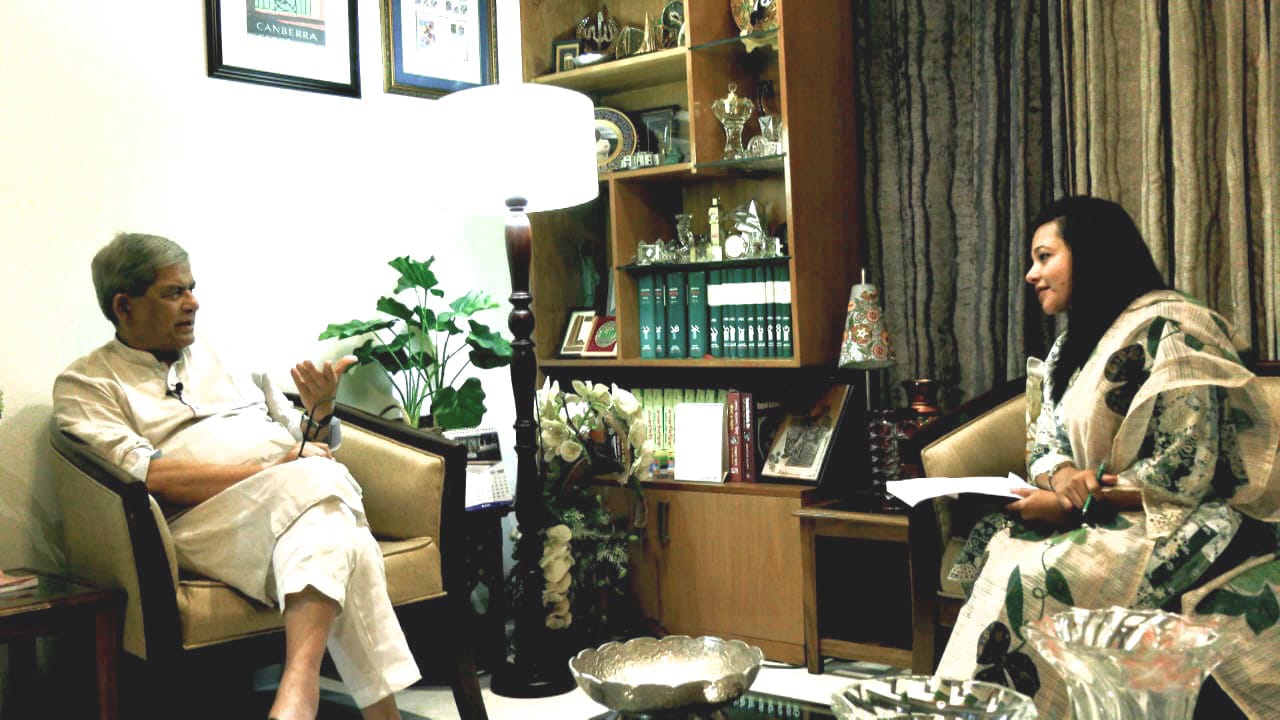
BNP Secretary General Mirza Fakhrul Islam Alamgir during an exclusive interview with Bangladesh Sangbad Sangstha (BSS) at his Gulshan residence in the capital. Photo: BSS
Following is the translated transcript of the interview by BSS Staff Reporter Rumana Jaman.
BSS: Recently, you joined the United Nations General Assembly session as a member of the Chief Adviser's delegation. How was the experience?
Mirza Fakhrul: It was my first experience of going to the United Nations. Undoubtedly, it was a very exciting one. I was also happy as I represented the government and Bangladesh and the deliberation of ours, which was the Chief Adviser's statement, was fairly good and got good coverage. Besides, we held several meetings on the sidelines in various capacities. Later, we met with expatriate Bangladeshis living there; we talked to them, and they shared their views as well. Overall, I would say our visit was a success.
BSS: How the global community views the new Bangladesh that emerged through the mass uprising of '24?
Mirza Fakhrul: At present, all countries - particularly the Western ones - have developed a great deal of interest in Bangladesh. They are keen to invest here. They are waiting for an election to be held and for an elected government to take office, after which they plan to invest here. Besides, other countries too are showing considerable interest in Bangladesh. Especially, third-world countries have shown immense interest. Moreover, our neighboring countries and those in the Middle East are also quite interested. Overall, following this student-people uprising, Bangladesh drew the entire world's attention.
BSS: A massive mass uprising has taken place in Bangladesh. How is the international community viewing this development?
Mirza Fakhrul: The devotion and eagerness of the Bangladeshi people to democracy - and the fact that common people are willing to sacrifice their lives for it - have undoubtedly astonished the world. Simultaneously the 2024 uprising has earned Bangladesh a distinct place of honor in the world.
BSS: The national election in Bangladesh is scheduled for February next year. What kind of support do you expect to receive from the international community?
Mirza Fakhrul: The organizations that are generally concerned with elections - for instance, the European Union - have already announced that they will send observers. Similarly, the United Nations has also shown significant interest in this election and is eager to send observers. The United Kingdom will send observers as well. Everyone in the world who believes in democracy are now keenly interested in Bangladesh's upcoming election because they saw the previous elections. That is why their interest has intensified. They were not even allowed to send observers during previous elections. But now, the Election Commission is granting them full access and permission to send observer teams.
BSS: There is widespread public speculation if the elections will actually take place in February. Does the BNP share any such doubts or concerns?
Mirza Fakhrul: There is no reason to doubt on that matter. The commitment made by the head of government, the government itself, and the way the Election Commission is taking preparations, we are confident that the election will definitely take place.
BSS: How much confidence does your party have in the Election Commission?
Mirza Fakhrul: We have enough confidence. Based on what we saw so far, I believe they are capable of conducting a neutral and fair election.
BSS: Since the election is approaching, the BNP must also be preparing. However, talks are there that compared to other political parties the BNP is lagging behind in its preparations. Is that true?
Mirza Fakhrul: Not at all. This is mere a propaganda against BNP - such as, "BNP is not ready," "BNP has no candidates," or "it has not even begun its campaign". None of these are true. The BNP has always ready for elections. Even during period of fascism, BNP took part in elections. The party contested the 2018 election, and now it is far better prepared. BNP leaders and activists at grassroots are far more alert and active. They are working among the people for the party.
BSS: When BNP candidates are expected to launch electioneering?
Mirza Fakhrul: The candidates have almost launched it. Those who intend to contest the polls as potential candidates are already in the field. Once the party nominations are finalized, they will officially begin campaigning, but by now, they are doing ground works.
BSS: What factors will matter most in candidate selection this time?
Mirza Fakhrul: Primarily, the ones who were involved in the BNP's movements and struggles over the past 17 years, including the mass movement of 2024 will be evaluated. Simultaneously they must have good organizational standing and public image. These are the individuals who will undoubtedly be prioritized as candidates in the upcoming election.
BSS: Will there be any surprises in the candidate selection this time?
Mirza Fakhrul: As far as "surprise" is concerned, the young generation will get a bit more priority this time since they are now much more active. Many of our old-generation leaders are physically unwell, and may not wish to contest the polls. Some professionals will come. Women will also get considerable priority.
BSS: There are discussions about possible electoral alliances. Is BNP forming any such alliance? Have you had any talks with other parties?
Mirza Fakhrul: So far, we haven't held any specific discussions with anyone regarding an electoral alliance. However, we have announced that after the election, we will form a government together with those who stood with us during the movement. Whether they will be part of it or not is their decision. At this moment, we have no active initiative over an electoral alliance.
BSS: So, there will be no electoral alliance at all?
Mirza Fakhrul: No decision has been made at this moment.
BSS: What will BNP's election manifesto look like this time? Will there be any special addition beyond BNP's 31-point?
Mirza Fakhrul: Essentially, the 31 points will form the basis of our election manifesto. Alongside that, economic issues will receive highest priorities. Particularly, unemployment - which we believe is the biggest problem right now - will be at the centre. So, our focus will be on how to reduce unemployment, create more employment opportunities, and increase investment. These issues will be prominently reflected in the manifesto.
BSS: Some political parties could not reach a consensus on the July Charter. Will this create a crisis in the future?
Mirza Fakhrul: No, not really. The fact of the matter is the consensus among all parties is not likely to happen. Different political parties will naturally have different opinions. The proposals that will be developed by considering all those views will eventually go to the people. In the election, the people will decide whom they will accept and elect to power. They (elected ones) will then take responsibility to run the state and govern accordingly.
What we have emphasized is that we do not want to go beyond the Constitution. Within the constitutional framework, we want to amend what is not suitable for us and bring new ideas.
BSS: The issue of legal basis of the Charter was raised and special orders and referendum before the election for that were suggested. How do you view this?
Mirza Fakhrul: A referendum on the day of the election might be possible, but a referendum before the election - we cannot accept that. That cannot happen.
BSS: What are main challenges for Bangladesh at this moment? If the BNP comes to power through people's vote, how will it deal with those challenges?
Mirza Fakhrul: The main challenge is to stabilize Bangladesh's economy. The previous government destroyed the economy - they ruined the banking system, engaging in massive corruption and looting, siphoned off money abroad, and closed the doors for investment. The current interim government brought under control the situation to some extent. We want to improve it further. We will definitely try to draw high volume investments reviewing the challenges with more precision.
BSS: Beyond BNP, NCP and Jamaat-e-Islami are maintaining a rather rigid stance over their demands including introduction of PR system. Where the solution lies?
Mirza Fakhrul: It's the character of political parties to make election-related demands. However, some of their demands are difficult to resolve through discussion because we have strong objections to certain points. For instance, regarding the PR system - our position is very clear: the people of our country are not accustomed to the PR system and are not prepared for it. Therefore, we are not willing to accept it.
BSS: If the BNP comes to power, how will it keep united the forces behind the 2024 mass uprising?
Mirza Fakhrul: The forces of the 2024 mass uprising - those who took part in the movement - will remain within the democratic framework. They will stay united; that's natural. Moreover, if we continue the practice of democracy, it will sustain itself. If I maintain democratic practices, uphold the principles of democracy, and develop the institutions, then we can all work together in unity.
BSS: Once BNP had a strong friendship or alliance with Jamaat-e-Islami. What has caused the distance now?
Mirza Fakhrul: In politics, there is no such thing as permanent alliances or permanent friendships. Circumstances decide who will be your political ally and who will not. Alliances and coalitions are formed, especially during elections. That existed before. At this moment, it's not visible. When opinions differ, such situations may arise - that's not abnormal. And where's the bad relationship? BNP maintains with Jamaat the same kind of relationship that one political party should have with another.
BSS: Jamaat-e-Islami has been talking about forming an alliance with several other political parties. Does the BNP consider this a challenge?
Mirza Fakhrul: We don't consider any of it a challenge. We believe that in this election we'll achieve a landslide victory, Insha'Allah. Because we have been struggling and fighting for 15 long years. In the past, as a political party, we have a positive record of governing the country.
It was we who brought reforms to this country. We transformed the one-party system into a multi-party one. We shifted the system from a presidential to a parliamentary form of government. We developed the export of manpower and the garment industry. We brought about fundamental changes in both the economy and politics through which the country has progressed.
In promoting women's education, Madam Zia's (Begum Khaleda Zia) contribution is undeniable - that took place during our time. In primary education, as well, the development came under our government. Most of the new hospitals in the health sector were built during Madam's tenure - not after. We have an all-plus record; (positive record), our score is much higher.
BSS: How realistic is the BNP's pledge to form a national government?
Mirza Fakhrul: That will depend on opinions of the parties participating in the election after it is held. However, we still stick to our commitment.
BSS: The activities of Awami League are banned - we all know that. Do you see any possibility of their participation in the election?
Mirza Fakhrul: I am not willing to comment on that right now. Because whether they can participate depends on whether the ban imposed on them is withdrawn. But I think the possibility of that withdrawal is slim.
BSS: What are your thoughts on the trial process of the Awami League and its political future?
Mirza Fakhrul: Awami League has dissolved itself. I don't think they have any space left in the minds of the general people. So, their return to politics won't be easy. And as a party involved in mass killing, they must be brought to justice and be tried seriously.
BSS: There are talks that the trial process against the Awami League is progressing slowly. What do you think?
Mirza Fakhrul: No, not at all. I think the interim government is doing as much as possible. They've even increased the number of tribunals, so the trial is proceeding quickly. Witness testimonies are underway, and the process seems to be nearing completion.
BSS: You are frequently meeting with diplomats. What kind of messages are international organizations conveying to the BNP?
Mirza Fakhrul: They want a fair election. They want the BNP to participate fully in the election. They also want to see how far the commitments BNP has made are suitable to in practicing democracy.
Particularly, they have some focal areas - the Western world wants to see greater participation of women. Simultaneously they put strong emphasis on human rights issues. They also take a firm stand on ensuring labour rights. International organisations (also) view human rights as a major concern.
BSS: India remains a relevant issue in Bangladesh's politics. What is the BNP's current relationship with India?
Mirza Fakhrul: We have always wanted a functional relationship with India - one based on honesty and good neighbourliness. That means India should take positive steps to resolve existing issues with us. For example, the water-sharing problem remains unresolved. Border killings must stop - we need to be more proactive about that. We will also address the trade imbalance in business and commerce.
The problem is India's interference. We will seek India not to in Bangladesh's internal politics.
BSS: If the BNP comes to power through the people's vote, will it take any step to control external influence on Bangladesh?
Mirza Fakhrul: If we assume responsibility for running the state, it will be our duty to maintain good relations with neighboring countries while expanding trade and economic ties. We will take all necessary initiatives to build and sustain those relationships.
BSS: The other night, BNP Chairperson Begum Khaleda Zia suddenly went to offer ziarat at her husband's grave. Did that carry any special message?
Mirza Fakhrul: Our leader hadn't offered ziarat there for nearly 18 years. Now that she feels a bit better, her doctor advised her to go outside occasionally. That's why, as soon as she felt slightly improved, she first went to pay respects at the grave of the Shaheed President Ziaur Rahman.
BSS: Will Begum Khaleda Zia take part in election campaigning?
Mirza Fakhrul: That entirely depends on her health. Since she's our Chairperson and a legendary leader, if she joins the campaign, it would be a huge positive boost for the BNP.
BSS: When BNP's Acting Chairman Tarique Rahman is expected to return to the country? Is there any security concern?
Mirza Fakhrul: I don't see any security threat, but ensuring his security is one of our party's demands. Besides, there are some logistical matters to arrange - housing, for instance, since he currently has no home here. (Acting) Chairman of a party needs a residence. At the same time, his office must be set up, and his transport arrangements are being made. It's taking some time, but everything is nearly ready - he's coming very soon.
BSS: Who will be the Prime Minister if the BNP comes to power?
Mirza Fakhrul: If our Chairperson Begum Khaleda Zia remains well physically and fit to work, she will be the Prime Minister. In her absence, our Chairman Tarique Rahman will take that role. There's no disagreement or confusion about that.

